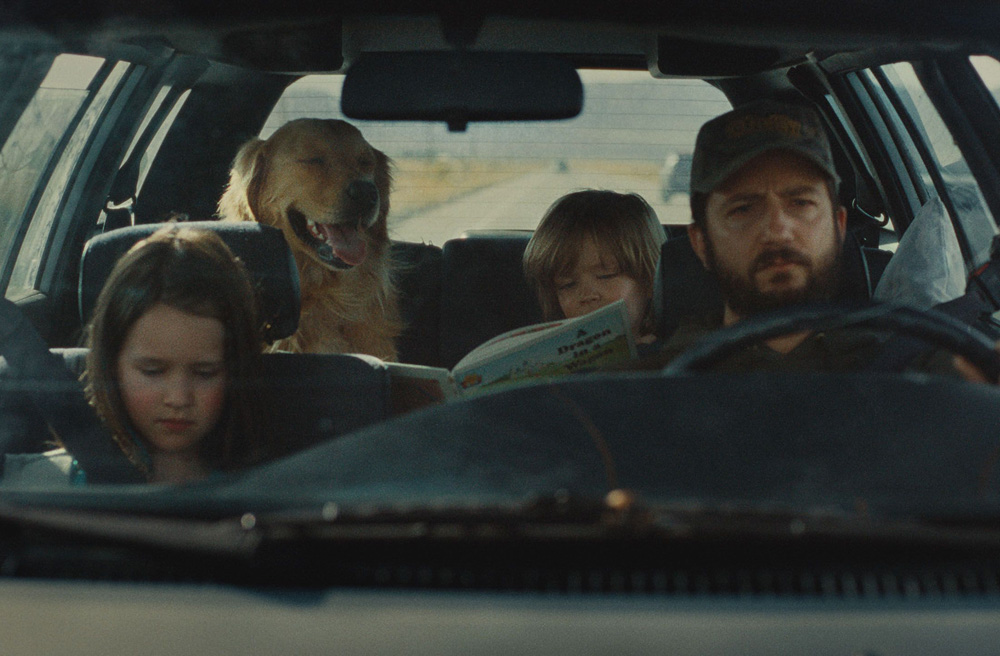“I think we’re moving,” Ella (Molly Belle Wright) tentatively concludes in “Omaha,” only vaguely sure of what to tell her younger brother Charlie (Wyatt Solis) after their dad Martin (John Magaro) has loaded them into the car at the crack of dawn. Handed an envelope with their social security cards, she may be nine but she knows something’s up despite her father’s best efforts to conceal what’s going on, distracting her and her brother from the sheriff that’s arrived to put up a foreclosure notice on their home and putting on the radio to shift any uncomfortable lulls as they drive away, which in their beat-up Toyota station wagon requires a literal running start to get going.
Director Cole Webley and writer Robert Machoian impressively observe a family overwhelmed by poverty without wallowing in it as they join the trio on the road to Nebraska where some kind of safe haven would seem to await. Martin is vague on details when he wouldn’t want to make his kids more uncomfortable than they already are – and the film is too, not even revealing a first name for the father until a few minutes before the end credits come up, eaking out enormous amounts of tension in what Ella is able to suss out at her young age. She may not yet have hit puberty, but she’s lived through a lot already for her age, no longer needing to be asked to step outside by her father to jump start the car after having clearly have gotten used to it over the years and relatively at peace with the loss of her mother some years before who passed from cancer.
Still, how much hardship she and Charlie can take is the driving question of the film, mercifully less so for an audience than it is for Martin, who has to keep one eye on the kids and one eye looking over his shoulder at all times in the perilous position of being a single father that can’t look for work if he wants to take care of his kids. Although the emotional toll of losing the family matriarch has clearly taken a toll, the film considers the practicalities when every second and every dollar Martin spends has to be accounted for when no money is coming in and he tries to give his children as full lives as possible. Machoian and Webley know the genuinely wrenching drama that lies in a father deciding between a candy bar for his kid or a Lunchables pack for himself when cash is tight, and the innocent suggestion of a random stranger at a gas station to Ella that she go to the Omaha zoo upon hearing she’s headed that way can completely throw things out of whack when admission for the three would be a steep $30.
As tough a situation that’s depicted, there’s nonetheless a buoyancy to “Omaha” that organically emerges from the tenderness of the filmmaking and the radiant performances of its main cast. Wright is a particular revelation as Ella, so often allowing the story play out on her face alone, and Magaro delivers a typically nuanced and sensitive turn as the father pulled in various directions at all times. However for Webley in his directorial debut, there’s a clarity of purpose as “Omaha” generally avoids the random pit stop in road movies that slow their momentum and as Martin buys time for himself, the film is all the more powerful when it’s so squarely focused on its destination and as it is for its lead character, every second feels truly precious.
“Omaha” does not yet have U.S. distribution.




